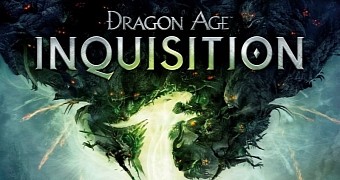Game publishers are starting to understand that piracy could be a force for good, if they look correctly at the numbers. Unfortunately, big companies are harder to budge in the right direction and they will continue to enforce stupid policies that are detrimental to paying users.
How many times have you read about a company that launches a very successful game and the people who paid for it were unable to play it because they had to authenticate online and the servers were down? Probably too many to count. At the same time, people who pirated the game had no trouble playing it. Not everyone is psyched to try the multiplayer and many users will only go through the single-player campaign.
Then there is a second situation, which is just as ridiculous as the first one. It happened to me, more than once. I would preorder a game, waiting feverishly for the launch, only to see that I can't play it along with everyone else. The reason was that I was in the wrong part of the world. The only gamers with access to the newly launched game were from US and people who pirated it. I had to wait for 2 or 3 days in order to play something I paid for.
Publishers operate with wrong assumptions
Probably the worst assumption that you can make as a publisher is that, if you block people from pirating the game, they will have to buy it. Therefore, every time a game lands on torrent websites, they count those downloads as lost sales. That is borderline idiotic, or at least shows that a gaming company is run by accountants and not real people.
A developer called Monument Valley provided some very interesting numbers on Twitter about their game "ustwo". They said that "only 5% of Monument Valley installs on Android are paid for. 40% on iOS." The difference is that they consider the people who pirate the game as free advertisers and not lost sales. They reached the conclusion that someone who pirates an application or a game is unlikely to buy it, if given the chance.
Now, imagine that big publishers like Electronic Arts or Activision would operate under the same assumption. What would happen? Would everyone pirate their games because they don't protect them anymore or things would remain pretty much the same?
There are no studies done on this issue
It's strange that such an important aspect of a multi-billion dollar business is not being investigated seriously. A couple of properly done studies would clear the air once and forever. How much would you pay, as a company, to find just how many "pirates" would actually pay for your products if they can't pirate it?
You would probably get two possible results. Either the intersection of these categories is pretty small and you know not to invest in ridiculous protections and to provide premium quality services for your products, or you find that these categories of people overlap a lot more and you invest into an unbreakable protection. You would stand to gain either way.
A limited case study is available
Recently, a new tampering protection called Denuvo has been protecting a few games, like Fifa 15, Lords of the Fallen, and Dragon Age: Inquisitions. Fifa 15 can be ignored, since it's mostly an online experience, but we can take a look at Lords of the Fallen and the latest Dragon Age.
Until now, Lords of the Fallen hasn't been cracked and Dragon Age lasted more than a month. Neither has registered tremendous sale numbers, despite the fact that you couldn't pirate them. Dragon Age is even hailed as the best RPG of 2014, and it has average sales. Nothing has really changed.
Piracy as free advertisement
Things are pretty simple. If you have a good game, it will be pirated a lot. If your game sucks, then it will be ignored. You can use that data to improve your product and you can look at the people who are playing without paying as free advertisers. Even if they don't give you a cent, but they like the game, they will praise it. And usually praise can also mean money. Unfortunately, this will probably never happen.

 14 DAY TRIAL //
14 DAY TRIAL //